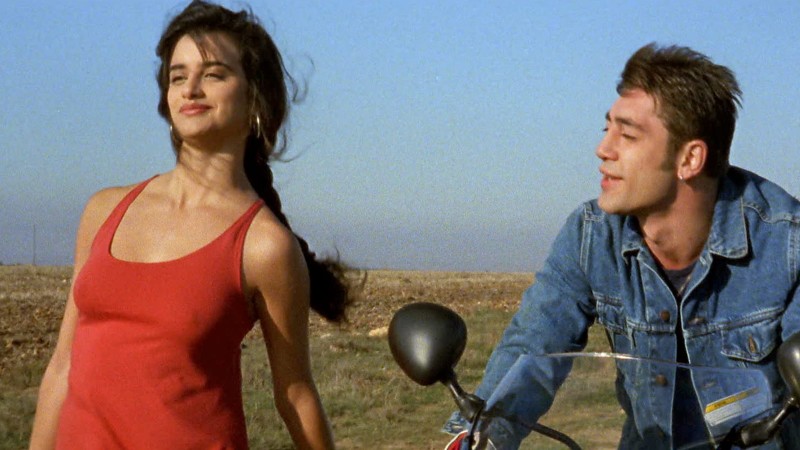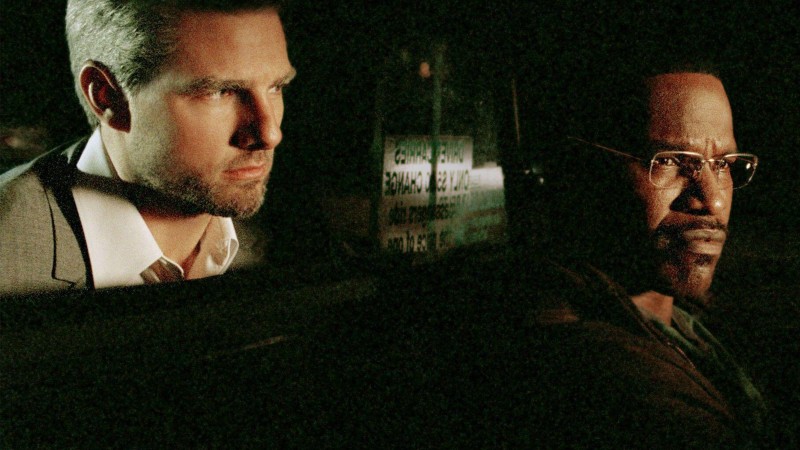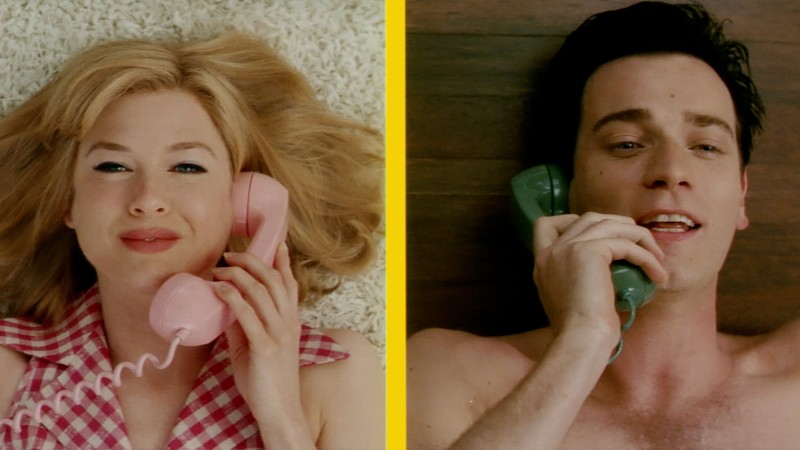The Criterion Channel’s September 2023 Lineup

The Criterion Channel’s September 2023 Lineup
This September, the Channel welcomes you back to school . . . where something sinister is afoot. Our High School Horror collection brings together cult classics and teen-slasher favorites for a bloodcurdling look at the scary side of adolescence. Make a fast getaway with our ’70s Car Movies series, a souped-up survey of the decade that saw pop cinema’s infatuation with the open road reach new heights. There’s so much more to choose from this month, including a comprehensive Hal Hartley retrospective, a chiaroscuro selection of noir period pieces, a sampler of studio craftsman Allan Dwan’s Hollywood classics, and a barrage of hopping vampires.
If you haven’t signed up yet, head to CriterionChannel.com and get a 7-day free trial.
* indicates programming available only in the U.S.
TOP STORIES

’70s Car Movies
WATCH NOW
America’s love affair with the automobile hit a peak in the 1970s, and so did Hollywood’s. While cars had long been synonymous with freedom and escape, they took on a new centrality in the decade’s popular cinema. Whether an expression of character, a tricked-out fetish object, or the literal vehicle on the road to enlightenment, the car was a powerful symbol of an age of individuality and personal liberation. Featuring ambling road trips (Thunderbolt and Lightfoot) and high-octane chases (Gone in 60 Seconds), souped-up Chevys (Dirty Mary Crazy Larry) and customized Cadillacs (Super Fly), these cinematic joyrides capture the “it’s the journey, not the destination” spirit of the times.
FEATURING: Duel (1971)*, Trafic (1971), Le Mans (1971)*, The Last Run (1971), Fear Is the Key (1972)*, Super Fly (1972), The Last American Hero (1973), The Seven-Ups (1973), White Lightning (1973), The Cars That Ate Paris (1974), Dirty Mary Crazy Larry (1974), Gone in 60 Seconds (1974), Thunderbolt and Lightfoot (1974)

High School Horror
WATCH NOW
Is there anything scarier than being a teenager? Relive your high school nightmares with these tales of terror unleashed in classrooms, gyms, locker-lined halls, and cafeterias, where psychotic slashers and supernatural monsters pursue jocks, nerds, and prom queens alike. The everyday fears of adolescence—social anxiety! changing bodies!—have inspired some of horror cinema’s most giddily bloodthirsty visions, from VHS-era exploitation shockers like Massacre at Central High and Slumber Party Massacre to ’90s teen-movie touchstones like I Know What You Did Last Summer and The Faculty and cult favorites like Donnie Darko and Battle Royale.
FEATURING: Massacre at Central High (1976), Suspiria (1977)**, Prom Night (1980)*, Slumber Party Massacre (1982), Twin Peaks: Fire Walk with Me (1992), The Craft (1996), I Know What You Did Last Summer (1997), The Faculty (1998)*, Battle Royale (2000), Ginger Snaps (2000), Donnie Darko (2001), Battle Royale II: Requiem (2003)
PREMIERES OCTOBER 16: Unfriended (2014)
**Worldwide streaming premiere of the restored uncut version, from Synapse films

Noir by Gaslight
WATCH NOW
The moody glow of the Victorian-era gas lamp suffuses these diabolical period thrillers that wring maximum atmosphere from their turn-of-the-century settings. Though noir is typically associated with the fedoras, trench coats, and hard-boiled slang of the postwar era, its style and themes—shadow-carved chiaroscuro lighting, dark motivations, and ill-fated characters—proved deliciously effective when applied to crime melodramas set in the late nineteenth century. With their mysterious mansions, rain-slicked cobblestone streets, and tales of (usually) female protagonists embroiled in danger and romance, these films—including triumphs of style and mood by noir greats like Robert Siodmak (The Suspect), John Brahm (Hangover Square), and Jacques Tourneur (Experiment Perilous)—offer up gothic pleasures galore.
FEATURING: Ladies in Retirement (1941), Gaslight (1944), The Suspect (1944), Experiment Perilous (1944), Hangover Square (1945), Dragonwyck (1946), Ivy (1947)*, Moss Rose (1947), Blanche Fury (1948), Corridor of Mirrors (1948), So Evil My Love (1948)*, Madeleine (1950), So Long at the Fair (1950)

Hal Hartley: A Retrospective
WATCH NOW
Featuring a new introduction by the filmmaker, part of Criterion’s Meet the Filmmakers series
Hal Hartley is a true independent, boasting one of the most idiosyncratic bodies of work in all of contemporary cinema. First emerging in the late 1980s and early ’90s with a fully formed sensibility on display in the barbed romantic comedies The Unbelievable Truth and Trust, he quickly became one of the most acclaimed voices on the indie circuit. But while many of his peers moved toward the mainstream, Hartley continued to cultivate his own decidedly personal methods. Marked by their deadpan wit, formal rigor, underground-rock soundtracks (featuring Yo La Tengo and Sonic Youth as well as the director’s own compositions) and offbeat performances (from rising stars such as Adrienne Shelly, Parker Posey, Edie Falco, Martin Donovan, and Elina Löwensohn), his films are unmistakably his, preternaturally attuned to language, behavior, and the dynamics between his vividly drawn characters. This comprehensive retrospective offers a chance to immerse yourself in the droll, effortlessly cool, bracingly humanist work of an artist in a league of his own.
FEATURES: The Unbelievable Truth (1989), Trust (1990), Surviving Desire (1992), Simple Men (1992), Amateur (1994), Flirt (1995), Henry Fool (1997)*, The Book of Life (1998), No Such Thing (2001), The Girl from Monday (2005), Fay Grim (2006)*, Meanwhile (2011), Ned Rifle (2014)
SHORTS: Kid (1984), The Cartographer’s Girlfriend (1987), Dogs (1988), Ambition (1991), Theory of Achievement (1991), Opera No. 1 (1994), NYC 3/94 (1994), Iris (1994), The Other Also (1997), The New Math(s) (2000), Regarding Soon (2004), The Sisters of Mercy (2004), A/Muse (2010), Implied Harmonies (2010), The Apologies (2010), Adventure (2010), Accomplice (2010)

Directed by Allan Dwan
WATCH NOW
Featuring a new introduction by critic Farran Smith Nehme
From the dawn of silent cinema to the coming of sound, color, widescreen, and even television—pioneering filmmaker Allan Dwan was there at every step of early Hollywood’s evolution. As a director, he made more than 130 features and nearly 300 shorts between 1911 and 1961. To these, he brought a master craftsman’s touch, proving adept at nearly every genre, from epic drama (East Side, West Side) to screwball comedy (High Tension) to western (Frontier Marshal) to noir (The River’s Edge). His understated yet gracefully innovative visual style (he is credited with introducing the dolly shot), compassionate humanism, and remarkable consistency exemplify studio-era classicism at its finest.
FEATURING: East Side, West Side (1927), Black Sheep (1935), High Tension (1936), One Mile from Heaven (1937), Frontier Marshal (1939). The River’s Edge (1957)
EXCLUSIVE PREMIERES

The Eight Mountains
WATCH NOW
Featuring a new introduction by the filmmakers, part of Criterion’s Meet the Filmmakers series
An epic journey of friendship and self-discovery, The Eight Mountains is a landmark cinematic experience as intimate as it is monumental, as deep as it is expansive. Adapting the award-winning novel by Paolo Cognetti, directors Felix van Groeningen and Charlotte Vandermeersch (The Broken Circle Breakdown) portray through observant detail and stunning landscape photography the profound, complex relationship between Pietro (Luca Marinelli) and Bruno (Alessandro Borghi), who first meet as children when Pietro’s Milan family vacations in an isolated village at the base of the Alpine slopes. As they mature, Pietro becomes estranged from his business-minded father (Filippo Timi) even as Bruno—emotionally abandoned by his own father—takes up the role of surrogate son. Pietro’s father’s death reunites the two in realizing his dream of constructing a cabin on the Alps, and the project and subsequent explorations of the awe-inspiring mountain range bond Pietro and Bruno in a shared purpose. Yet despite their connection, the purity of nature and the demands of society both threaten to drive the men to pursue different, possibly irrevocably divergent paths on the vertiginous terrain of life.
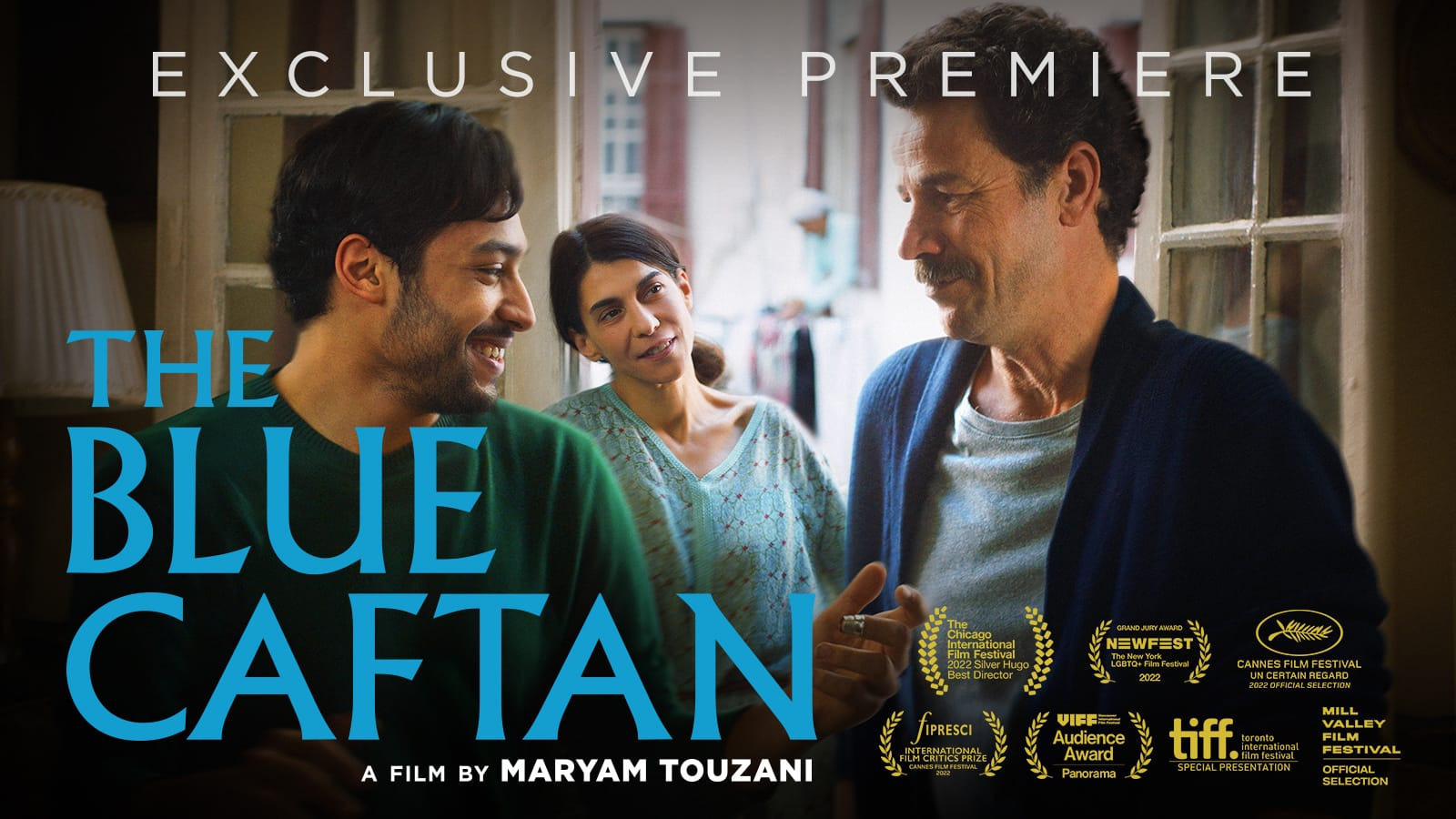
The Blue Caftan
WATCH NOW
With her stirring and sensitive second feature, Moroccan writer-director Maryam Touzani (Adam) weaves a richly emotional tapestry of love, forbidden desire, and compassion that’s as beautifully wrought as the luxuriant fabrics that fill its sensuous frames. Tailor Halim (Saleh Bakri) and his wife, Mina (Lubna Azabal), run a traditional caftan store in one of Morocco’s oldest medinas. In order to keep up with the requests of the demanding customers, they hire Youssef (Ayoub Missioui). The talented apprentice shows an utmost dedication in learning the art of embroidery and tailoring from Halim. Slowly Mina realizes how much her husband is moved by the presence of the young man, and a delicate push-pull between three hearts ensues.

Dry Ground Burning
WATCH NOW
An electrifying portrait of Brazil’s fraught contemporary moment that blends documentary with narrative and genre elements, Dry Ground Burning reunites filmmakers Joana Pimenta and Adirley Queirós (Once There Was Brasilia) to offer a unique vision of the country’s possible future. Just out of prison, Léa (Léa Alves da Silva) returns home to the Brasilia favela of Sol Nascente and relives her past experiences with her half-sister Chitara (Joana Darc Furtado), the fearless leader of an all-female gang that once stole and refined oil from underground pipes and sold gasoline to a clandestine network of motorcyclists. Living in constant opposition to Jair Bolsonaro’s fiercely authoritarian and militarized government, Chitara’s women claim the streets for themselves as a declaration of radical political resistance on behalf of the incarcerated and the oppressed.
REDISCOVERIES AND RESTORATIONS

A Time for Burning
WATCH NOW
With extraordinary access and unflinching frankness, this remarkable, underseen documentary offers an X-ray of the soul of a divided America working through the social shockwaves of the civil rights movement. The film chronicles the struggles of Rev. L. William Youngdahl, pastor of the Augustana Lutheran Church in Omaha, Nebraska, as he tries to persuade members of his all-white congregation to reach out to their Black neighbors in an attempt to right some of the wrongs of systemic racism. A Time for Burning captures both the resistance of the white churchgoers, who speak candidly about their fears of integration, and the incisive perspectives of the Black residents (including firebrand activist and future state senator Ernie Chambers) who see through the hypocrisy of the church.

Hopping Vampires of Hong Kong
WATCH NOW
They’re undead, unstoppable, and hopping mad! Meet the bouncing, bloodsucking stars of Hong Kong’s most outrageous martial-arts horror comedies. Far removed from the suave vampires of Western mythology, these zombie fiends, derived from Taoist folklore, are distinguished by their deathly pallor and pogo-stick method of chasing down their victims—with typically only a majestically unibrowed priest capable of kung-fu kicking them back into the afterlife. Guided by the goofball vision of the great Sammo Hung—who directed the OG hopping vampire flick Encounters of the Spooky Kind and produced the genre’s delirious apotheosis, the popular Mr. Vampire franchise—these blissfully bonkers films exemplify the gleeful creativity and go-for-broke insanity that elevated Hong Kong genre cinema in its golden age.
FEATURING: Encounters of the Spooky Kind (1980), Mr. Vampire (1985), Mr. Vampire II (1986), Mr. Vampire III (1987), Mr. Vampire IV (1988)
CRITERION COLLECTION EDITIONS

Spike Lee’s politically and emotionally charged portrait of one day in the life of a single Brooklyn block confirmed him as a filmmaker of peerless vision and passionate social engagement.
SUPPLEMENTAL FEATURES: Audio commentary featuring Lee and other cast and crew members, a making-of documentary by St. Clair Bourne, extensive interviews with cast and crew members, behind-the-scenes footage, and more.
DIRECTOR SPOTLIGHTS

Three by Andrew Bujalski
WATCH NOW
Progenitor of the early-2000s indie filmmaking wave that would come to be known as mumblecore, Andrew Bujalski has retained the handcrafted, DIY spirit that defined the movement even as his productions have grown (modestly) in budget and scale. His films are humorously offbeat, precisely observed snapshots of hyperspecific social microcosms—from a 1980s AI nerdfest in Computer Chess to the world behind the counter of a Hooters-like sports bar in Support the Girls—lent vivid authenticity through their unfailingly naturalistic dialogue and keen understanding of human relationships.
FEATURING: Computer Chess (2013), Results (2015), Support the Girls (2018)*
COLLABORATIVE PROGRAMS
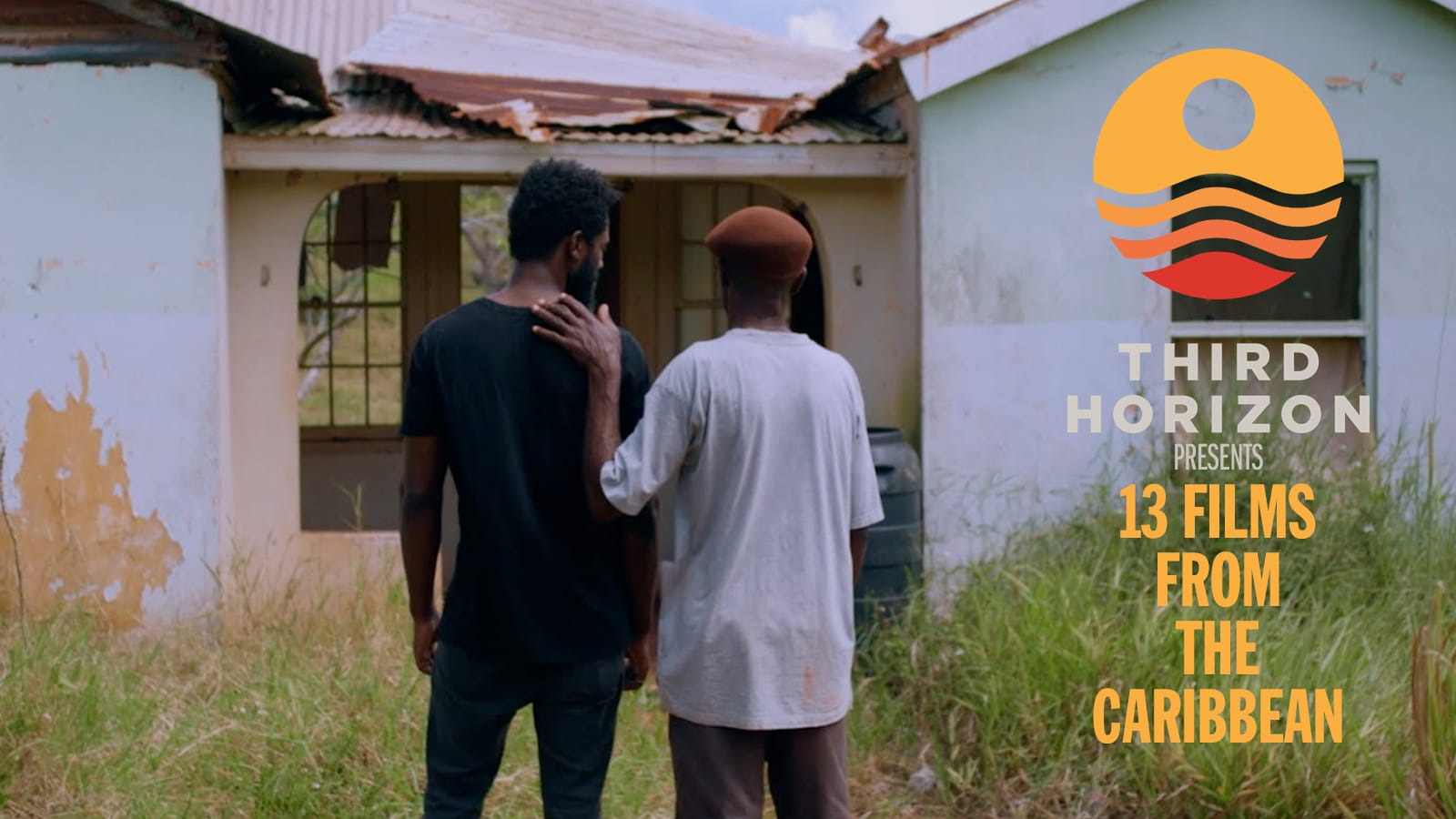
Third Horizon Presents
WATCH NOW
Over the last decade, Third Horizon has established itself as a champion of exceptional Caribbean cinema rooted in the region’s locus as a global crossroads of both history and geography, a pivot around which the old world became the new, and a harbinger of an intersectional future ravaged by colonialism and climate change. Featuring a selection of films drawn from Third Horizon’s flagship initiative, the Miami-based Third Horizon Film Festival, from its first edition in 2016 to its most recent in 2022, this program brings together fiction, documentary, and hybrid works from across the region and its diasporas. Formally and politically radical, these films seek to transcend stereotypical, reductive, and potentially harmful ways of seeing the Caribbean while understanding that representation is a means to an end and not merely an end in itself. In refusing to make a spectacle of their historically marginalized subjects while embracing the layered complexity of Caribbean identity, they become vital and impactful works of art.
FEATURES: Cocote (2017), Stones Have Laws (2019), Right Near the Beach (2020), Paroles de nègres (2021)
SHORTS: Field Notes (2014), Douvan jou ka leve (2017), The Cemetery Lightens (2018), Dadli (2018), Nou voix (2018), My Mother Resents Me (2019), Aquí (2020), Here Is the Imagination of the Black Radical (2020), The White Death of the Black Wizard (2020)
TRUE STORIES

And with Him Came the West
WATCH NOW
Will the real Wyatt Earp please stand up? This smartly entertaining pop-culture detective story examines what happens when real-life history becomes inextricably entwined with Hollywood mythmaking.
HOLLYWOOD HITS

Coogan’s Bluff*
WATCH NOW
Clint Eastwood’s taciturn Arizona lawman brings frontier justice to the streets of New York in the first of the actor’s landmark collaborations with action specialist Don Siegel.

Man’s Favorite Sport?*
WATCH NOW
Decades after he took the screwball comedy to its giddiest heights in Bringing Up Baby, director Howard Hawks paid homage to the genre he helped invent with this frenetic farce.

Peggy Sue Got Married
WATCH NOW
If you could turn back the hands of time, how would you change your destiny? In this bittersweet pop fable, Peggy Sue (an Oscar-nominated Kathleen Turner) is transported back to her senior year of high school and given the opportunity to take another path in life.
NEW ADDITIONS TO PREVIOUS PROGRAMS
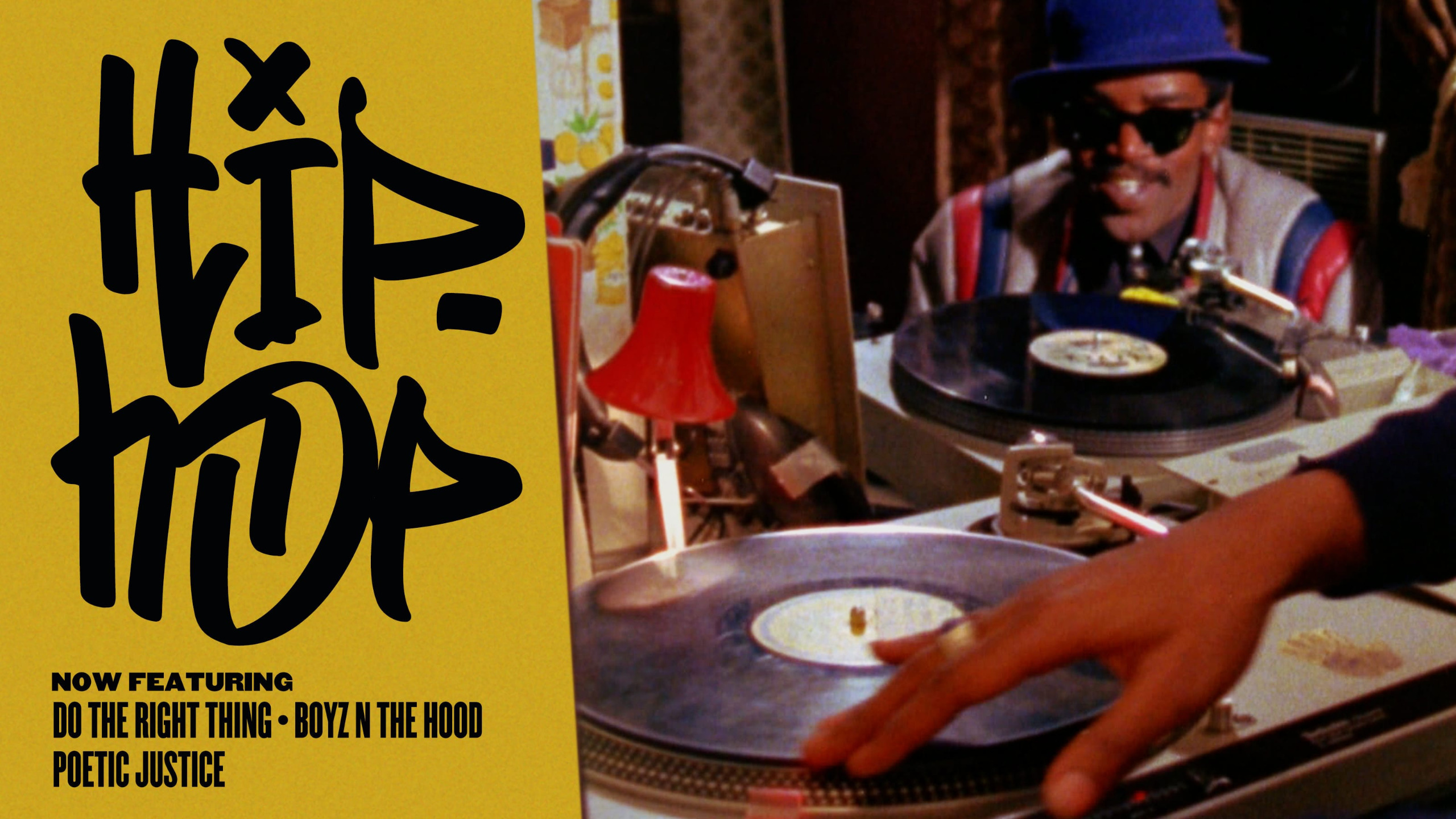
Now Playing in Hip-Hop
WATCH NOW
Our celebration of hip-hop’s fiftieth anniversary continues with Spike Lee’s 1989 masterpiece (featuring the incendiary Public Enemy anthem “Fight the Power”) and a pair of modern classics from John Singleton starring rap legends Ice Cube and Tupac Shakur.
FEATURING: Do the Right Thing (1989), Boyz n the Hood (1991), Poetic Justice (1993)
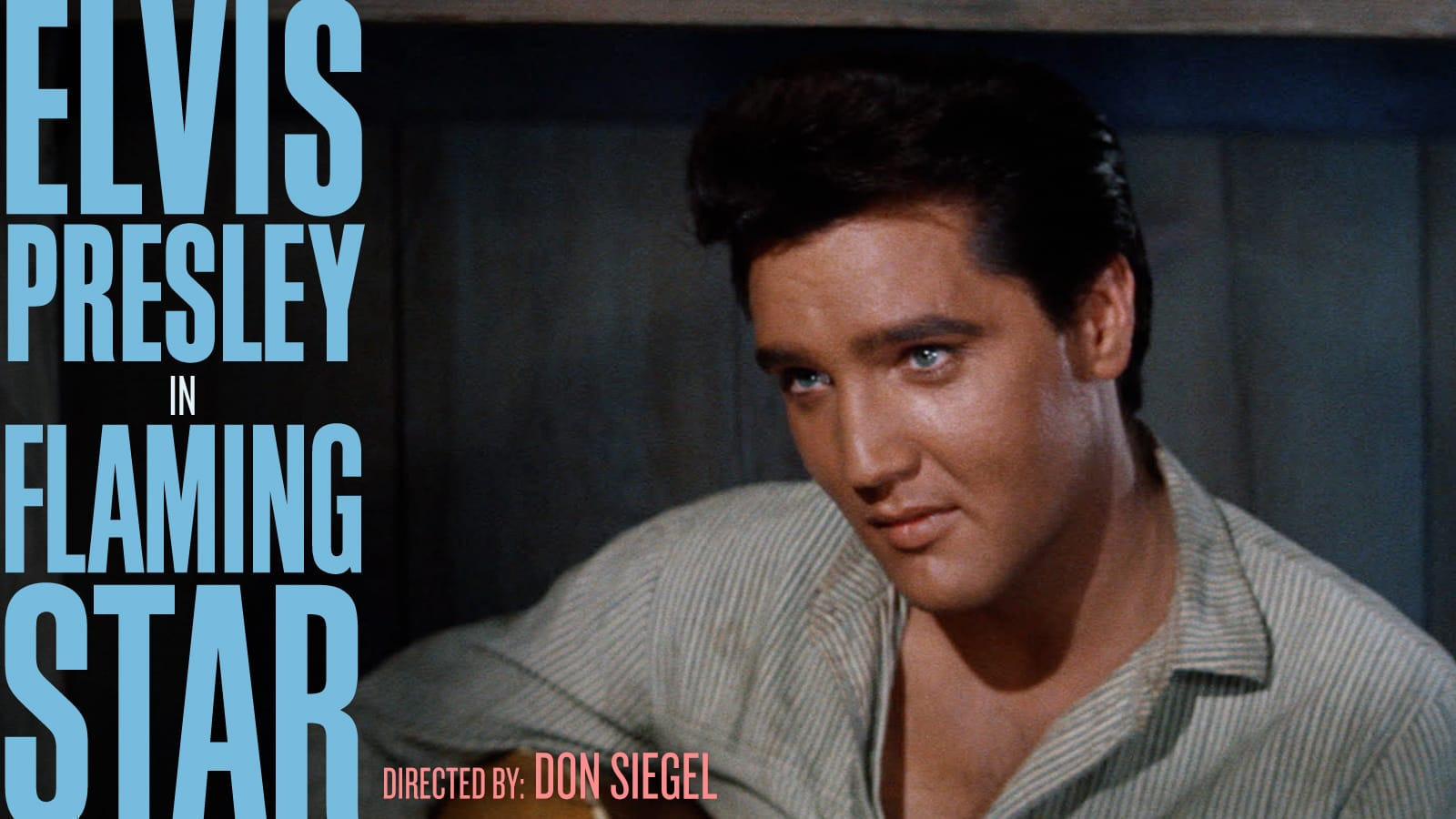
Now Playing in Elvis!: Flaming Star
WATCH NOW
Elvis Presley takes on the most complex role of his career: a half-Kiowa, half-white Texas rancher who finds himself caught between both sides of his family when a violent conflict breaks out between the settlers and Native Americans.
ENCORES
Back by Popular Demand
Don’t miss these viewer favorites, returning to the Channel in September!
FEATURING: Fat City (1972), Eyes of Laura Mars (1978), Hardcore (1979), Gloria (1980)
